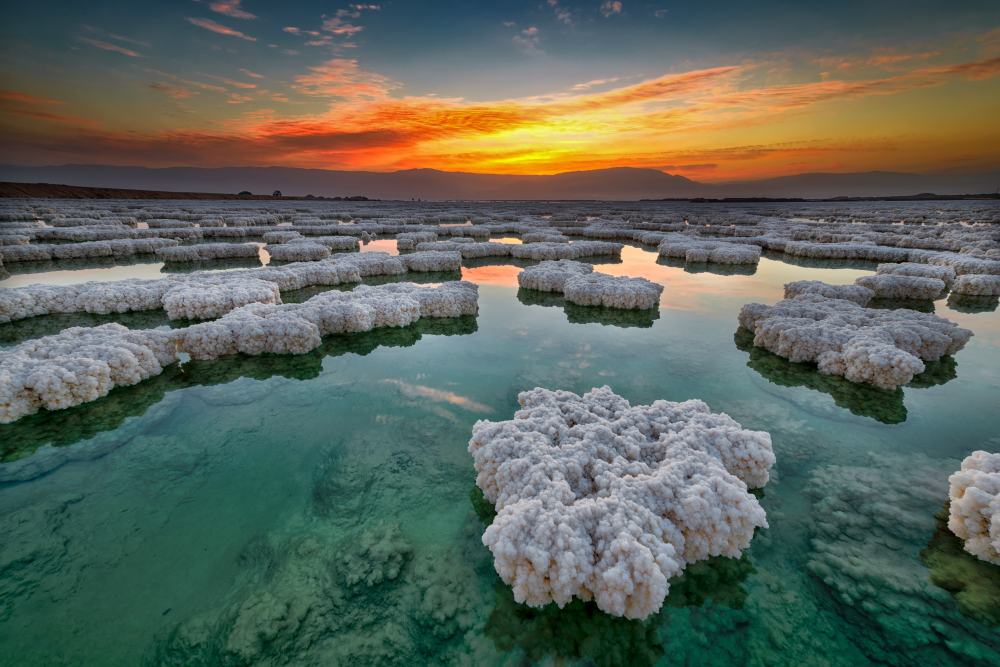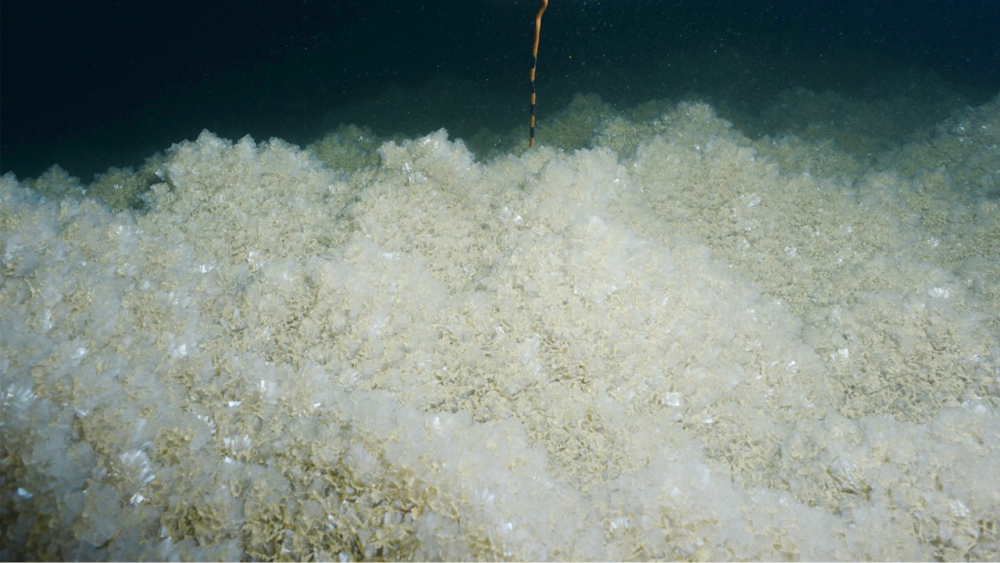The Dead Sea is one of the planet’s saltiest bodies of water. Technically a land-locked lake, rather than a sea, it’s nestled between Jordan, Israel, and Palestine, and as its total lack of fish, bird, or plant life is a testament to, it really is quite dead.
Why is the Dead Sea so salty?
The Dead Sea is so salty because it’s fed by the Jordan River but has no outlet, meaning water can only exit by evaporating and leaving its minerals – and salts – behind. This means the Dead Sea has become increasingly briny over time as the salts accumulated, and it’s now estimated to be 9.7 times saltier than the ocean.
The saltiness has been intensified by human activity as less water reaches the Dead Sea from the Jordan River due to things like damns and diversion for agriculture. As we’ve either redirected or prevented the flow of water, less fresh stuff is reaching the Dead Sea, meaning there’s less available to dilute the salty lake. Add to that the region’s heat and mineral-rich springs sprouting along the Dead Sea’s shores due to tectonic activity, and you have yourself one salty body of water.

The Dead Sea is so salty you can float with ease.
Image credit: Ido Meirovich / Shutterstock.com
How salty is the Dead Sea?
The Dead Sea is the second saltiest lake on the planet, topped in brininess by Gaet’ale Pond, located in Danakil Depression, Ethiopia. That pond is a staggering 43.3 percent salt compared to the Dead Sea’s 34 percent, but given the ocean is on average 3.5 percent, you get an idea how of incredibly salty that still is.
The extreme salinity gives the Dead Sea a “feeling like olive oil mixed with sand,” reports the NASA Earth Observatory, and means that anybody climbing in can float with ease. Its levels have also been dropping at a rate of around 1.2 meters (3.9 feet) per year as a result of human activity, and as it gets even saltier, scientists have noticed something happening on the lake’s bed.

The water is so saturated with salt that it doesn’t take much for salt crystals to precipitate on the Dead Sea’s lake bed.
Image credit: NASA Earth Observatory
The Dead Sea Observatory discovered that in response to increasing saline levels, salt has been precipitating on the lakebed, creating a salt layer that’s getting thicker by several inches each year. It happens through a process known as “salt fingering” (aka, double-diffuse convection) as hot water travels to the comparatively cooler bottom, losing its capacity to hold salt as it cools. Instead, the salt gets dumped in crystal form, and this happens relatively quickly because the Dead Sea is already at the extreme end of how much salt can be saturated into water.
Does anything live in the Dead Sea?
The only life to be found in the Dead Sea is microscopic. As you might imagine, living things don’t really vibe with this degree of salinity, and even the most salty of extremophiles like brine shrimp aren’t interested.
However, since the 1930s we’ve known that the Dead Sea isn’t completely dead, home to microbes that Scientific American reports exist in concentrations of around 1,000 to 10,000 archaea per milliliter. In 1992, life put on quite a show in the Dead Sea when a bloom of Dunaliella parva flushed the top layer of water that was likely diluted enough by rainwater to make it possible.
Despite D. parva being a green alga, the bloom turned the Dead Sea red due to high levels of bacterioruberin. So good work, the Dead Sea. Nothing will convince the planet you’re still alive quite like looking like a big puddle of salty blood.
Source Link: Why Is The Dead Sea So Salty?